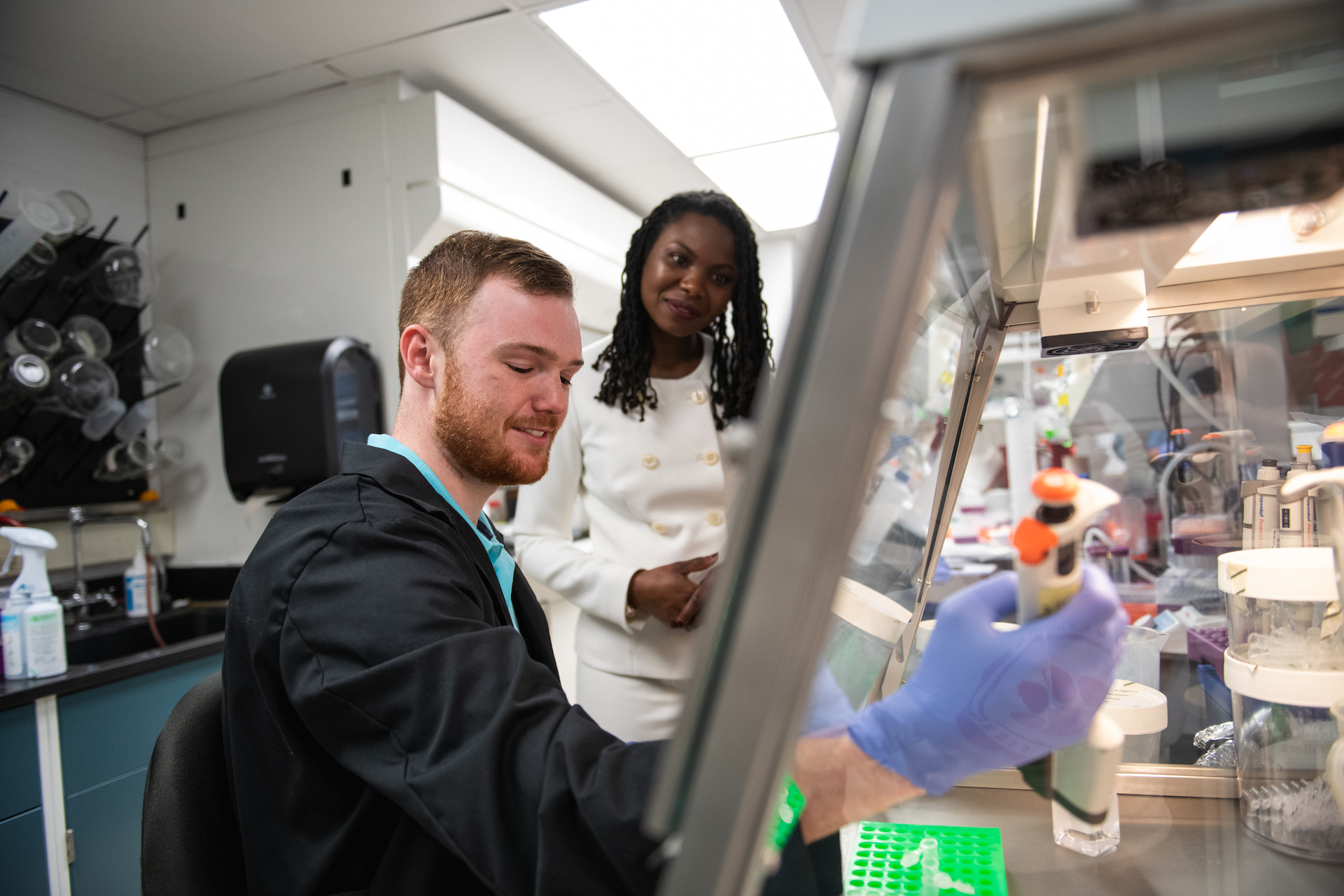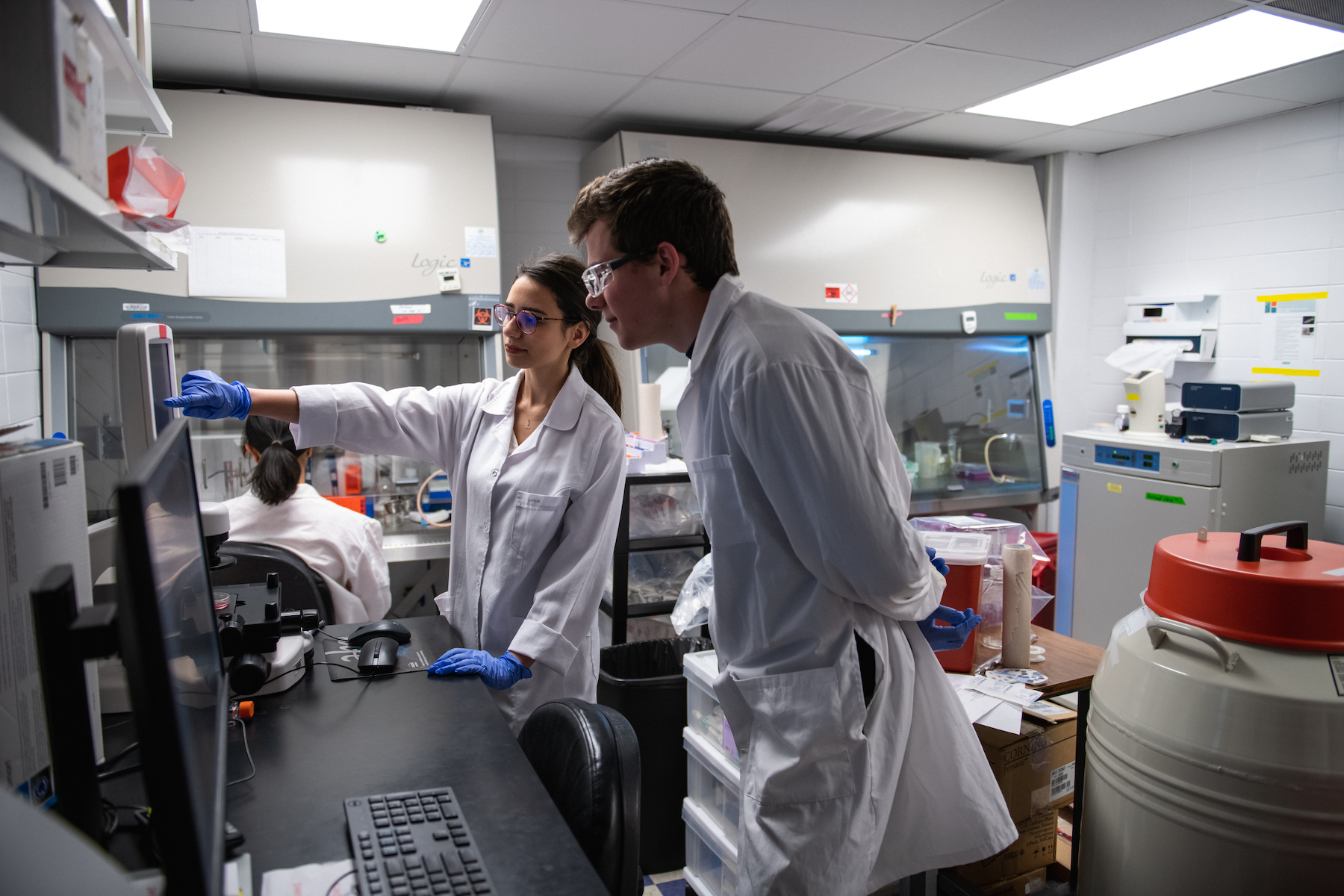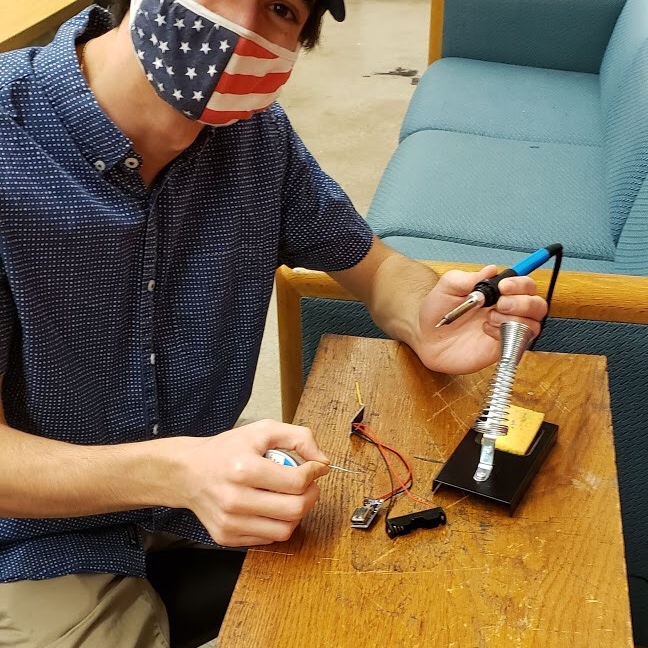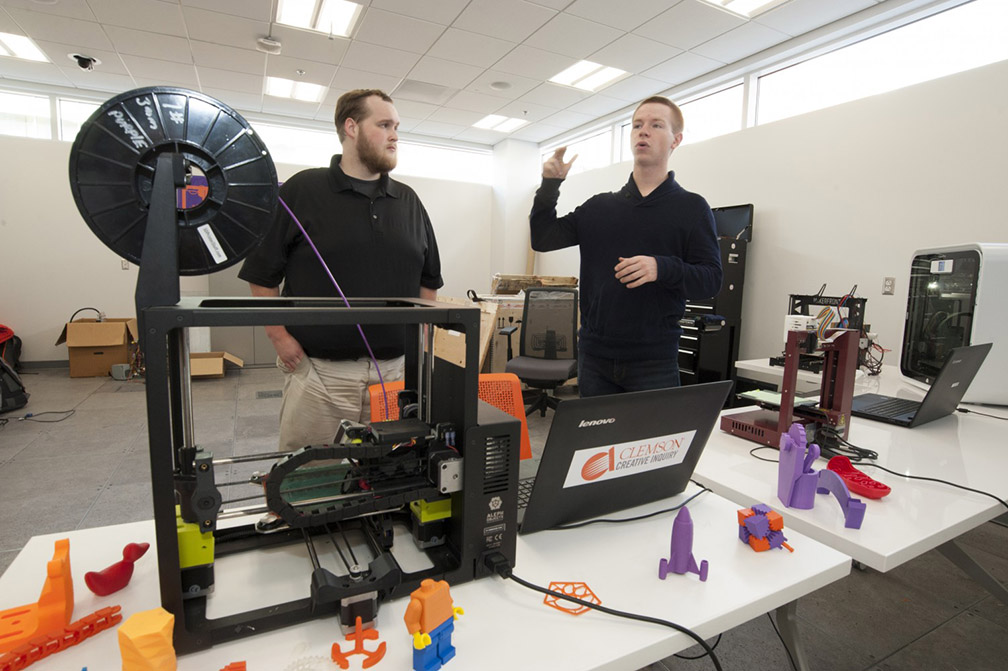Breaking the Pattern: Erasing Disease from Our Genes
By: Emma Williamson & Allie Cheves

Dr. Renee Cottle observes student Tanner Rathbone’s pipetting technique.
Photo by Josh Wilson
Since the Early Middle Ages, society has pondered the question of how to treat disease. Even with a modern health care system, diseases are far from being eradicated and some have minimal treatments. The Targeted Gene Editing in Mammalian Cells Creative Inquiry project, led by Dr. Renee Cottle from the Department of Bioengineering, is seeking solutions to inherited diseases by starting at the source of the problem—genes.
The Creative Inquiry project is exploring gene therapy techniques for inherited diseases. “My lab is actually focused on developing cell-based gene editing therapies for inherited metabolic diseases of the liver,” Cottle said. Gene therapy takes cells from a patient, edits the genes to treat the disease by reconstructing the defective genetic material, then reintroduces the cells into the patient in order to combat the disease. To fully immerse in the research, students participate in training for laboratory safety and procedures such as cell culturing, fundamentals of gene editing and polymerase chain reactions (PCR).
The students made significant progress this year. The team’s observations led to a change in their gene editing methodology resulting in a more efficient technique. Using the new method, they create genetic mutations that result in a frame shift, the insertion or deletion of a specific nucleotide, which reduce the expression of a target gene. This mutes the effects of an inherited disease, thus acting as a viable therapeutic solution.
The Targeted Gene Editing in Mammalian Cells Creative Inquiry project provides research experiences in the growing field of gene editing. Cottle hopes to provide students with opportunities to co-author a publication and attend conferences which will enhance their application materials for future job or professional school applications. The students not only gain real-world experience in this project, but they learn “how [gene editing] can really change society and how to stay abreast of developments in the field,” Cottle says.

Ilayda Ates discusses images with CI student Kienan Salvafre.
Photo by Josh Wilson
CONTACT
Barbara J. Speziale
Director
(864)656-1550
bjspz@clemson.edu
Cora Allard-Keese
Assistant Director
(864)656-0721
callara@clemson.edu


